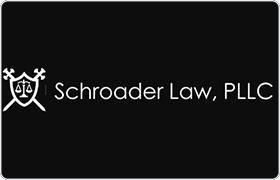Graham Divorce & Family Law Lawyer, Washington
Sponsored Law Firm
-
 x
x

Click For More Info:
-
Schroader Law, PLLC
1105 Tacoma Ave S Tacoma, WA 98402» view mapDivorce & Family Law Exceptional Legal Service
Schroader Law, PLLC offers superior service from start to finish. Attorney Schroader is a knowledgeable lawyer offering comprehensive legal advice with realistic expectations.
800-916-9671
Steven Richard Levy
Bankruptcy, Personal Injury, Civil Rights, Family Law
Status: Inactive Licensed: 52 Years
Timothy Michael Greene
Immigration, Family Law, Criminal, Personal Injury
Status: In Good Standing Licensed: 37 Years
John Francis Vercimak
Land Use & Zoning, Family Law, Personal Injury, Business & Trade
Status: Inactive Licensed: 56 Years
Dennis B. Casey
Federal, Family Law, Criminal, Bankruptcy
Status: In Good Standing Licensed: 40 Years
D. Michael Shipley
Employment Discrimination, Personal Injury, Family Law, Juvenile Law
Status: Inactive Licensed: 36 Years
Pamela Kae Rodriguez
Litigation, Family Law, Civil Rights, Insurance
Status: In Good Standing Licensed: 21 Years
Becky A Lamont
State Government, Family Law, Divorce & Family Law, Criminal
Status: In Good Standing Licensed: 24 Years
 Dennis Schroader Tacoma, WA
Dennis Schroader Tacoma, WA Practice AreasExpertise
Practice AreasExpertise
